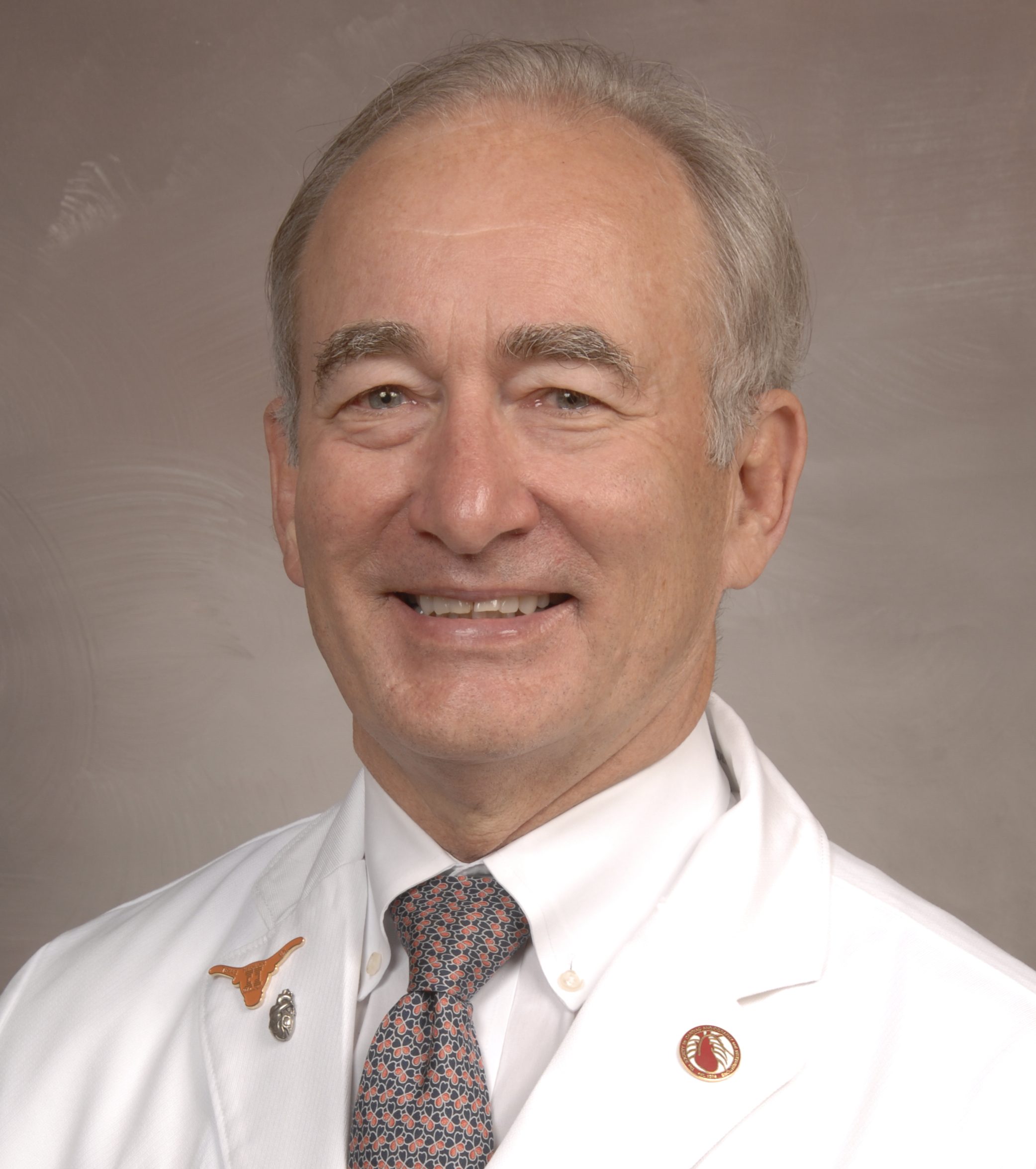
Richard W. Smalling, MD, PhD
- Interventional Cardiologist, Cardiovascular Medicine
- Professor, McGovern Medical School at UTHealth Houston
- James D. Woods Distinguished Chair in Cardiovascular Medicine
Biography
Dr. Smalling is a native Texan who received his B.S. in Aerospace Engineering and M.S.M.E. in Bio-Medical Engineering from UT Austin, and PhD from what is now The University of Texas MD Anderson Cancer Center UTHealth Graduate School of Biomedical Sciences. He is an AOA graduate of McGovern Medical School at UTHealth and did his residency training and cardiology fellowship at the University of California-San Diego. Board certified in internal medicine, cardiovascular medicine, and interventional cardiology, he is Past President of the American Heart Association, Texas Affiliate, and Past President of the Medical Staff of Memorial Hermann-Texas Medical Center where he was also named a Distinguished Physician. He has been honored as a Distinguished Alumnus of both McGovern Medical School (1991) and the Cockrell College of Engineering at the University Texas at Austin (1997).
Named an America’s Top Doctor for the past fifteen years, Dr. Smalling received the Distinguished Service Award from the American Heart Association Texas Affiliate in 1990. He is on the editorial boards of Catheterization and Cardiovascular Interventions, The Journal of Interventional Cardiology, and Journal of the American College of Cardiology- Interventions and is a past associate editor for Circulation. In 2016, he was named a Master in the Society of Catheterization and Cardiovascular Interventions. In addition, he holds six patents and Co-founded Windmill Cardiovascular Systems, to produce a new implantable left ventricular assist device. He and his team has developed the first valveless, pulsatile flow LVAD that pumps in synchrony with the cardiac cycle and automatically changes its pumping function to optimize cardiac function.
Dr. Smalling specializes in the treatment of valvular heart disease and adult congenital heart disease percutaneously. His research interests include development of 3-D, fluoroscopically guided structural heart interventions and reduction of reperfusion injury by mechanical LV unloading and endothelin inhibition. Clinically, his team is actively pursuing the role of very early treatment of patients with acute myocardial infarction and evaluating new percutaneous methodologies for treating valvular heart disease.
Dr. Smalling is the author of over 250 peer-reviewed articles, 25 book chapters, 2 books, and more than 15 web-based CME articles. He and his wife Sharon have 3 children, Geoffrey, Elizabeth and Stephanie and 2 grandchildren. They enjoy cooking, cycling, skiing and traveling together.
Accomplishments
- James D. Woods Distinguished Chair in Cardiovascular Medicine
- America’s Top Doctors and Texas Super Doctor
- UTHealth McGovern Medical School: Distinguished Alumnus Award
- The University of Texas at Austin, College of Engineering: Distinguished Alumnus Award
- Distinguished Physician Award Memorial Hermann Hospital
Board Certifications
- American Board of Internal Medicine
- American Board of Internal Medicine – Cardiovascular Disease
- American Board of Internal Medicine – Interventional Cardiology
Education
- Medical School
- McGovern Medical School at UTHealth Houston
- Doctoral of Philosophy Degree
- McGovern Medical School at UTHealth Houston
- Residency
- University of California, San Diego Medical Center
- Fellowship
- University of California, San Diego Medical Center
Areas of Interest
Clinical Interests
- Atrial septal defect (ASD)
- Carotid stenting
- Endovascular aneurysm repair (EVAR)
- MitraClip
- Paravalvular leak closure
- Patent foramen ovale (PFO) closures
- Patent ductus arteriosus (PDA) closures
- Septal ablation for hypertrophic obstructive cardiomyopathy (HOCM)
- Transcatheter aortic valve replacement (TAVR)
- Transvascular mitral and aortic valve in valve placement
- Ventricular septal defect (VSD)
- Watchman
Research Interests
His research interests include advanced intravascular imaging procedures for coronary artery disease and mechanical and pharmacologic reduction of ischemic myocardial injury. Clinically, his team is actively pursuing the role of very early treatment of patients with acute myocardial infarction and evaluating new percutaneous methodologies for treating valvular heart disease.
Publications
Practice Location(s)
- UT Physicians Cardiology – Texas Medical Center
(832) 325-7211
6410 Fannin Street, Suite 600
Houston, TX 77030
Directions